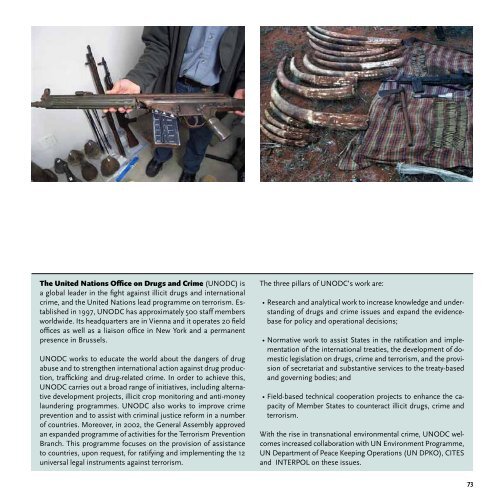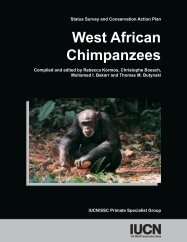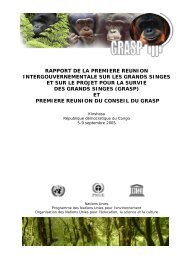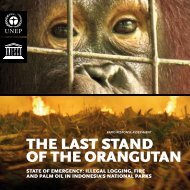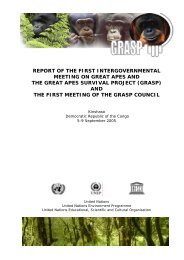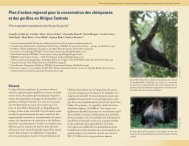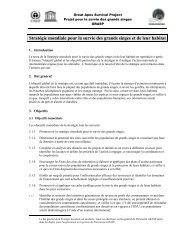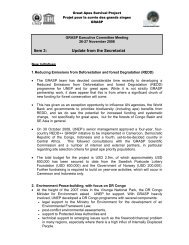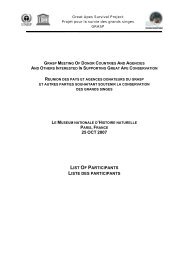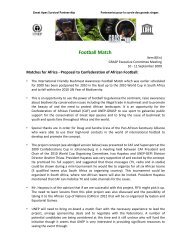THE LAST STAND OF THE - GRASP
THE LAST STAND OF THE - GRASP
THE LAST STAND OF THE - GRASP
Create successful ePaper yourself
Turn your PDF publications into a flip-book with our unique Google optimized e-Paper software.
The United Nations Office on Drugs and Crime (UNODC) is<br />
a global leader in the fight against illicit drugs and international<br />
crime, and the United Nations lead programme on terrorism. Established<br />
in 1997, UNODC has approximately 500 staff members<br />
worldwide. Its headquarters are in Vienna and it operates 20 field<br />
offices as well as a liaison office in New York and a permanent<br />
presence in Brussels.<br />
UNODC works to educate the world about the dangers of drug<br />
abuse and to strengthen international action against drug production,<br />
trafficking and drug-related crime. In order to achieve this,<br />
UNODC carries out a broad range of initiatives, including alternative<br />
development projects, illicit crop monitoring and anti-money<br />
laundering programmes. UNODC also works to improve crime<br />
prevention and to assist with criminal justice reform in a number<br />
of countries. Moreover, in 2002, the General Assembly approved<br />
an expanded programme of activities for the Terrorism Prevention<br />
Branch. This programme focuses on the provision of assistance<br />
to countries, upon request, for ratifying and implementing the 12<br />
universal legal instruments against terrorism.<br />
The three pillars of UNODC’s work are:<br />
• Research and analytical work to increase knowledge and understanding<br />
of drugs and crime issues and expand the evidencebase<br />
for policy and operational decisions;<br />
• Normative work to assist States in the ratification and implementation<br />
of the international treaties, the development of domestic<br />
legislation on drugs, crime and terrorism, and the provision<br />
of secretariat and substantive services to the treaty-based<br />
and governing bodies; and<br />
• Field-based technical cooperation projects to enhance the capacity<br />
of Member States to counteract illicit drugs, crime and<br />
terrorism.<br />
With the rise in transnational environmental crime, UNODC welcomes<br />
increased collaboration with UN Environment Programme,<br />
UN Department of Peace Keeping Operations (UN DPKO), CITES<br />
and INTERPOL on these issues.<br />
73


